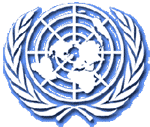
| Canada Votes "No" - UN Declaration | 26 July 06 |
 The newly established United Nations Human Rights Council has adopted the UN Declaration on the Rights of Indigenous Peoples that has been debated for 11 years. The newly established United Nations Human Rights Council has adopted the UN Declaration on the Rights of Indigenous Peoples that has been debated for 11 years.In the June 29, 2006 vote, the 47-member Council adopted the Declaration by a vote of 30 in favour, 12 abstentions and 2 against (3 absent). Canada's new federal government led the opposition to the Declaration. Russia was the only other nation to vote against the Declaration. A Canadian delegate told the Council the Declaration would have "no legal effect" in his country - once a champion of the project. Indigenous coalition representatives say they believe the opposition was largely driven by concern over the potential loss of state control over how natural resources, such as oil, gas and timber, are exploited. Experts have said the legal standards and rules adopted through an international declaration would ensure respect for the human rights and fundamental freedoms of indigenous peoples. Some States have disagreed with indigenous peoples having the right to "self determination" Currently, the UN estimates that there are approximately 370 million indigenous peoples living in different parts of the world. The 18-page declaration calls on governments to introduce laws to underpin its provisions. It will go to the UN General Assembly in New York for final approval, probably September 2006. View the UN Declaration on the Rights of Indigenous Peoples (DOC) View the June 30, 2006 Reuters article View the July 6, 2006 Georgia Straight article View the July 11, 2006 CBC North article View the June 27, 2006 ABC News article Sources: United Nations, ABC News, Reuters |
|
